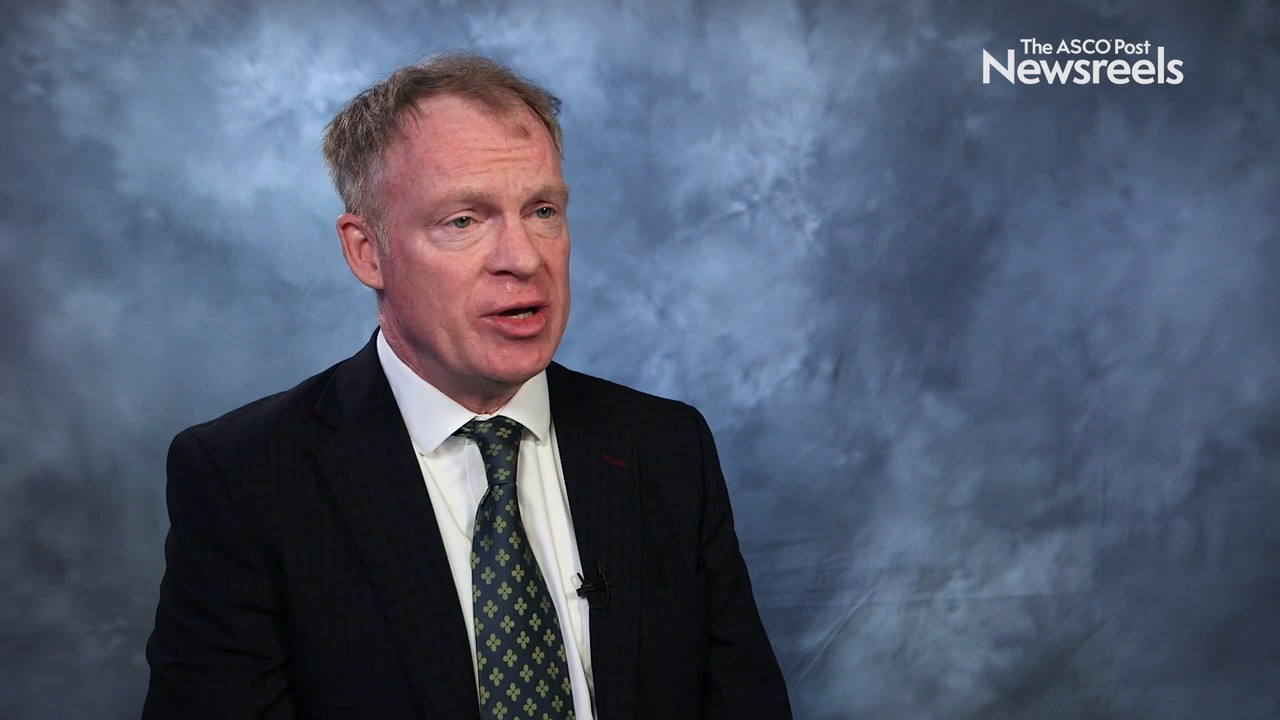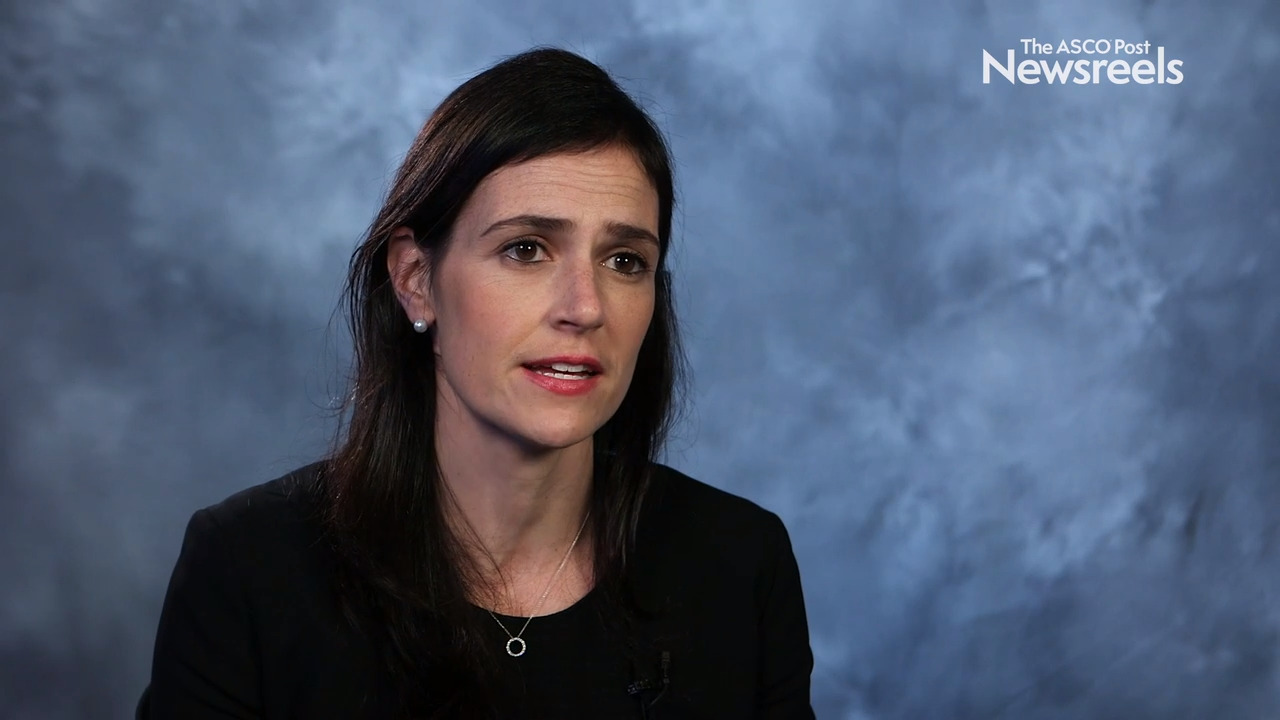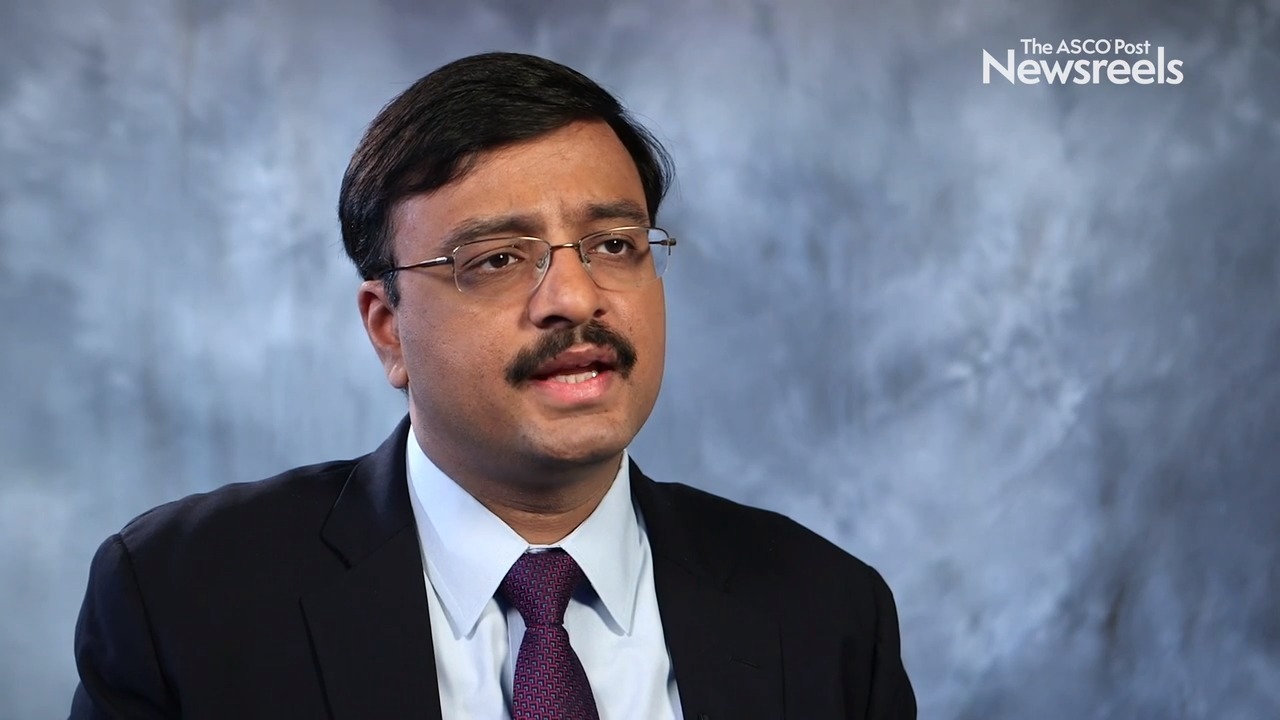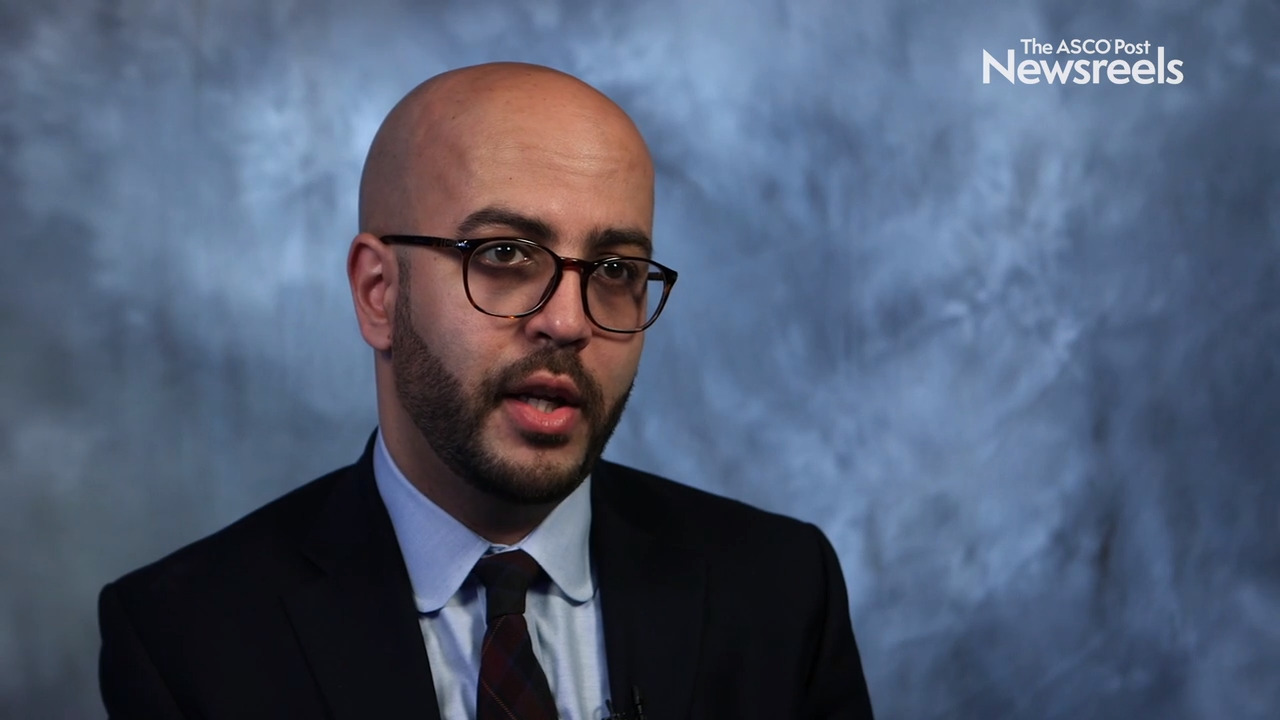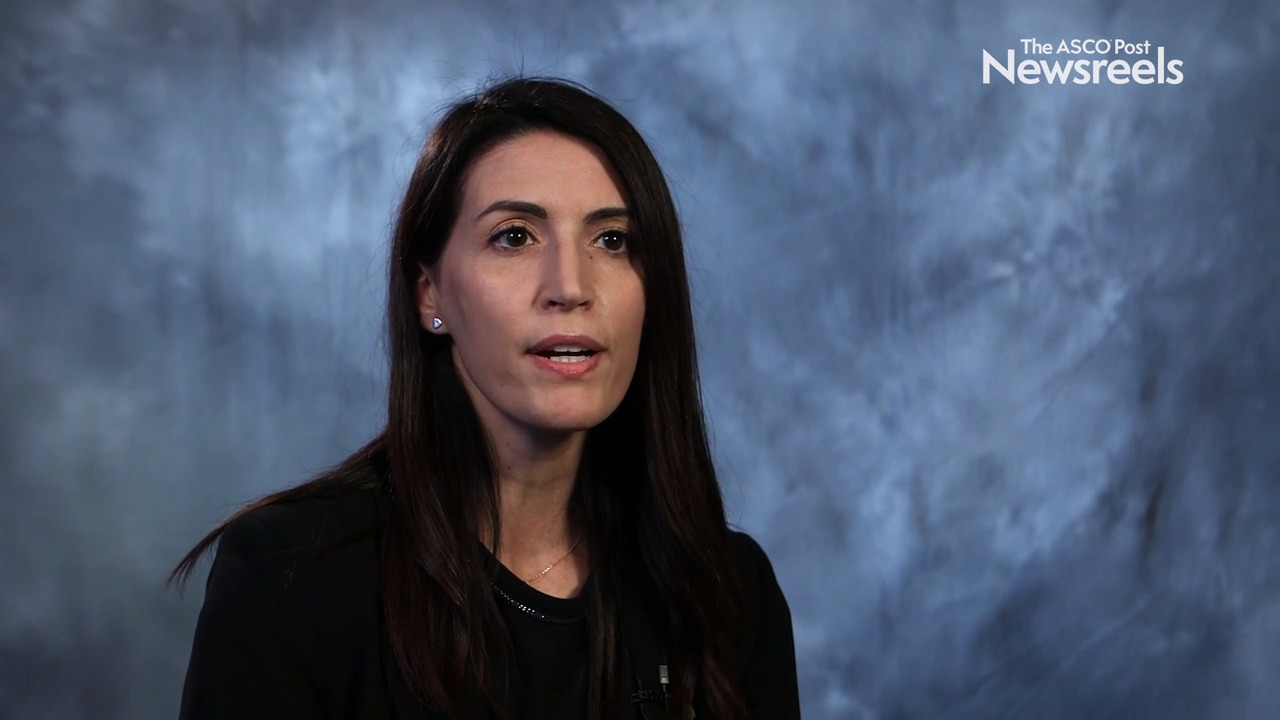Loretta J. Nastoupil, MD, on Follicular Lymphoma: Trial Results With Obinutuzumab/Lenalidomide
2019 ASH Annual Meeting & Exposition
Loretta J. Nastoupil, MD, of The University of Texas MD Anderson Cancer Center, discusses phase II study findings that showed obinutuzumab in combination with lenalidomide for patients with previously untreated, high tumor burden follicular lymphoma was associated with improved outcomes (Abstract 125).
Patrick A. Brown, MD, of Johns Hopkins University, discusses phase III findings from a Children’s Oncology Group Study showing that blinatumomab was superior to chemotherapy in terms of efficacy and tolerability for young patients as a post-reinduction therapy in the setting of high- and intermediate-risk first relapse of B-cell acute lymphoblastic leukemia (Abstract LBA-1).
Jennifer Crombie, MD, of Dana-Farber Cancer Institute, discusses early study results which showed that duvelisib plus venetoclax showed activity in patients with relapsed or refractory chronic lymphocytic leukemia/small lymphocytic lymphoma, with no dose-limiting toxicities observed (Abstract 1763).
Nitin Jain, MD, of The University of Texas MD Anderson Cancer Center, discusses findings from two studies showing that the combination of ibrutinib and venetoclax is an effective chemotherapy-free oral regimen for patients with high-risk, previously untreated chronic lymphocytic leukemia (Abstract 34).
Mark Bustoros, MD, of Dana-Farber Cancer Institute, discusses phase II study results showing that the combination of ixazomib, lenalidomide, and dexamethasone is effective in patients with high-risk smoldering disease, with a high response rate, convenient schedule, and manageable toxicity. Longer follow-up for disease outcome is ongoing (Abstract 580).
Ilaria Iacobucci, PhD, of St. Jude Children’s Research Hospital, discusses her work to more accurately define mutation subtypes in acute myeloid leukemia and myelodysplastic syndromes, as well as the implications for diagnosis, prognosis, and treatment (Abstract LBA-4 ).
